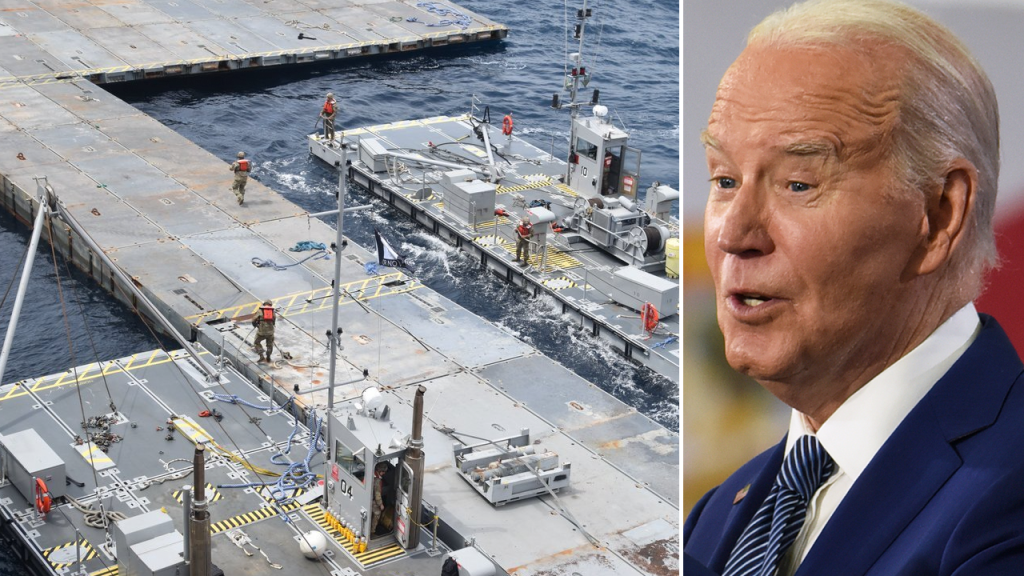President Biden’s order to establish temporary piers in the Mediterranean Sea off the coast of the Gaza Strip has faced criticism due to running over budget and causing logistical issues. Lawmakers have questioned the value of the operation, with some expressing concerns about the costs and safety risks involved. The Pentagon announced the completion of the piers, which aimed to increase the delivery of humanitarian aid to the territory as millions remain displaced while Israel continues to hunt Hamas. However, the project has faced difficulty since its deployment, with costs totaling over $300 million, double what initial estimates indicated, according to some reports.
Rep. Michael Waltz, R-Fla., raised concerns about the escalating costs of the project and the deployment of assets that could be used elsewhere. He pointed out that the aid delivery outside of Gaza has not been the primary issue, as the aid faces similar challenges once it is delivered across the border due to attacks and corruption by Hamas. Deliveries through the temporary piers have not reached the desired level, facing various issues such as damage to the piers and logistical problems. Trucks began entering the Gaza Strip, but the operation ran into additional challenges, leading to unforeseen costs and security threats.
Waltz criticized the operation for being initiated for “purely political reasons,” suggesting that it was a response to political pressures and policy shifts. He highlighted the risks faced by service members involved in the mission, stating that they are unnecessarily put in harm’s way. The aid deliveries have been disrupted as crowds stopped the trucks at various points along the route, causing a self-distribution of the deliveries. Pentagon Spokesman Maj. Gen. Patrick Ryder also expressed dissatisfaction with the rate of aid flow, indicating ongoing challenges in the operation.
The concerns raised by lawmakers and defense officials highlight the complexities and challenges of the temporary piers project. Issues such as escalating costs, logistical problems, security threats, and disruptions in aid distribution have cast doubt on the effectiveness and value of the operation. Waltz emphasized the need to address the issues faced by the aid delivery process inside Gaza, suggesting that efforts to secure the aid deliveries are not enough to ensure their successful distribution and utilization. The criticisms point to the need for a reevaluation of the project and an assessment of its impact on the delivery of humanitarian aid to Gaza.
The White House did not respond to requests for comment on the criticisms and challenges facing the temporary piers project. The involvement of U.S. service members in supporting the mission to provide humanitarian aid to Gaza has resulted in injuries, including one listed in critical condition. The difficulties encountered in the operation highlight the risks and uncertainties associated with such initiatives, particularly in conflict-affected regions like Gaza. The ongoing debates and criticisms surrounding the project underscore the importance of effective planning, coordination, and implementation in humanitarian aid efforts in challenging environments.
Overall, the temporary piers established in response to President Biden’s order have faced scrutiny and criticism for running over budget, causing logistical challenges, and failing to meet the desired level of aid delivery. Lawmakers and defense officials have raised concerns about the escalating costs, safety risks, and operational issues faced by the project. The criticisms reflect broader questions about the effectiveness and value of the operation, calling for a reevaluation of the approaches and priorities in delivering humanitarian aid to Gaza. The complexities and challenges highlighted in this case emphasize the need for careful planning, monitoring, and coordination in humanitarian aid efforts in conflict-affected regions like Gaza.













